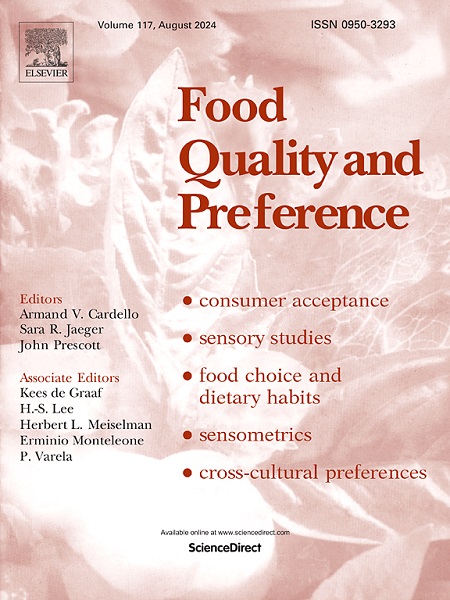A cross-sectional study on parental support and preferences for healthy school lunch concets in Dutch primary schools
IF 4.9
1区 农林科学
Q1 FOOD SCIENCE & TECHNOLOGY
引用次数: 0
Abstract
In the Netherlands, school lunches have not traditionally been part of the culture, as most children bring packed lunches from home. However, there is growing advocacy for introducing school lunches in The Netherlands. This highlights the importance of understanding parental support for school lunches. The aim of this study was to investigate parental support and preferences for different school lunch concepts in Dutch primary schools and to examine subgroup differences by sex, education level, financial situation, and migration background. This cross-sectional study was conducted among Dutch parents of primary school children. Participants completed an online questionnaire in which their support for six healthy school lunch concepts was measured (Likert scale ranging from −2 to +2) as well as their preferred lunch concept. Results showed that a total of 1861 parents completed the questionnaire (82.6 % female, mean age 45.5, SD: 5.8 years). The highest parental support was found for the concepts “sandwiches prepared by the children themselves at school” (mean 0.95, SD: 1.09) and “school policy for a healthy lunch from home” (mean 0.88, SD: 1.04). The lowest parental support and preferred concepts were hot lunch concepts, although parents with a non-Western migration background reported greater support and preference for hot lunch concepts. The results of this study showed that there is support for schools providing lunch in the Netherlands, especially for those concepts that resemble the type of lunches that children currently bring from home. For implementation, it is important to take into account subgroup differences.
荷兰小学家长对健康学校午餐概念的支持和偏好的横断面研究
在荷兰,学校午餐并不是传统文化的一部分,因为大多数孩子都从家里自带午餐。然而,越来越多的人主张在荷兰引入学校午餐。这凸显了理解家长支持学校午餐的重要性。本研究的目的是调查荷兰小学中家长对不同学校午餐概念的支持和偏好,并根据性别、教育水平、经济状况和移民背景检查亚组差异。这项横断面研究是在荷兰小学生的父母中进行的。参与者完成了一份在线调查问卷,其中测量了他们对六种健康学校午餐概念的支持度(李克特量表范围从- 2到+2)以及他们喜欢的午餐概念。结果共1861名家长完成问卷调查,其中女性占82.6%,平均年龄45.5岁,SD: 5.8岁。家长对“孩子们在学校自己准备三明治”(平均值0.95,标准差1.09)和“学校关于在家吃健康午餐的政策”(平均值0.88,标准差1.04)这两个概念的支持度最高。最低的父母支持和偏好的概念是热午餐概念,尽管具有非西方移民背景的父母报告更大的支持和偏好热午餐概念。这项研究的结果表明,在荷兰,人们支持学校提供午餐,特别是那些类似于孩子们目前从家里带来的午餐的概念。对于实现,考虑子组差异是很重要的。
本文章由计算机程序翻译,如有差异,请以英文原文为准。
求助全文
约1分钟内获得全文
求助全文
来源期刊

Food Quality and Preference
工程技术-食品科技
CiteScore
10.40
自引率
15.10%
发文量
263
审稿时长
38 days
期刊介绍:
Food Quality and Preference is a journal devoted to sensory, consumer and behavioural research in food and non-food products. It publishes original research, critical reviews, and short communications in sensory and consumer science, and sensometrics. In addition, the journal publishes special invited issues on important timely topics and from relevant conferences. These are aimed at bridging the gap between research and application, bringing together authors and readers in consumer and market research, sensory science, sensometrics and sensory evaluation, nutrition and food choice, as well as food research, product development and sensory quality assurance. Submissions to Food Quality and Preference are limited to papers that include some form of human measurement; papers that are limited to physical/chemical measures or the routine application of sensory, consumer or econometric analysis will not be considered unless they specifically make a novel scientific contribution in line with the journal''s coverage as outlined below.
 求助内容:
求助内容: 应助结果提醒方式:
应助结果提醒方式:


